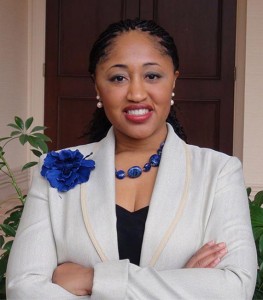 Community Matters is a biweekly opinion column. The views expressed are solely the author’s.
Community Matters is a biweekly opinion column. The views expressed are solely the author’s.
I recently did something which may be considered a faux pas among social media users.
The “People You May Know” section on Facebook had gotten on my last nerve. I have designed a very specific Facebook experience for myself. I don’t like reminders or requests. I check messages and handle any action items which create notifications quickly, just so I do not see the notification. (I do realize this is odd!)
I had approximately 4,600 friends, and the limit is 5,000. I randomly added about 400 friends so I would reach the limit and avoid enduring the “People You May Know” section while I scrolled on my Facebook timeline.
While most of the people with whom I have shared this think it’s the stupidest thing someone can do (who wants a bunch of random people to see their posts or better yet, why do you want to see their random posts?), it has been a fascinating experiment. It has forced me to get comfortable with being uncomfortable each time I see a post contrary to my long held beliefs.
In 2006 I graduated from the Sorensen Institute of Political Leadership at the University of Virginia. One of the basic principles of the organization is to bring together people who “have a wide variety of viewpoints and backgrounds but want to work together for the common good.” I relished the opportunity to hear different perspectives and to have my own ideas challenged. So much so that when I started Virginia Leadership Institute in 2006 to increase the number of Black elected officials, it was important to me that the organization was non-partisan.
While the majority of African Americans identify with the Democratic Party, if we are focusing on electing the most qualified African Americans who will create public policy which helps all African Americans advance, we must recognize the value of diverse perspectives at the table.
On Facebook, when I meticulously selected friends who I either knew personally, or knew people I knew, I predictably agreed with the majority of what they posted. With my new influx of “friends,” I quickly began to notice ideological differences in everything from politics, to what they felt comfortable posting on Facebook (some of these comments and memes are straight out of the 1950s in terms of the sexist tones.)
It is tempting to unfriend them, or unfollow them, but being confronted daily with opinions which are so far from what I would ever believe or entertain, is important. That “discomfort” comes with a constant reminder that there really are people who think that way, and they have supporters who like, love and laugh at their opinions and inappropriate humor.
I recently took an unpopular position publicly and have been chastised for it, to include rude and inappropriate behavior in public. I was surprised because I expected more from the person. Living in a progressive Democratic community, I had hoped that disagreements would be treated differently.
When members of our community react negatively when we disagree, it creates an unhealthy dynamic. Arlington’s public engagement norms for the most part provide ample opportunity for dialogue, but what happens afterwards? How are you treating people on the “winning” or “losing” side? Are we coming together to rationally discuss our differences? We will not grow as a community if we don’t learn to respectfully disagree, and truly understand each other’s perspectives.
This month, I challenge you to find at least one person who you disagree with on an issue and just talk to them about it. Listen to their ideas. 2020 is sure to bring a number of challenges throughout Arlington. We will not always agree on the best way forward, but the final solutions will likely be a combination of perspectives, with a dash of discomfort along the way.
Krysta Jones has lived in Arlington since 2004 and is active in local politics and civic life. This column is in no way associated with or represents any person, government, organization or body — except Krysta herself.


